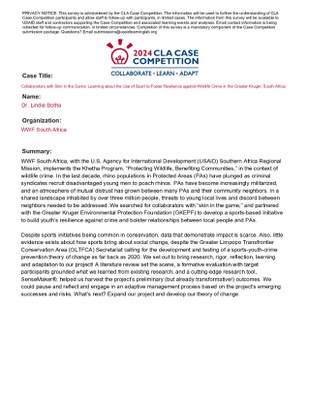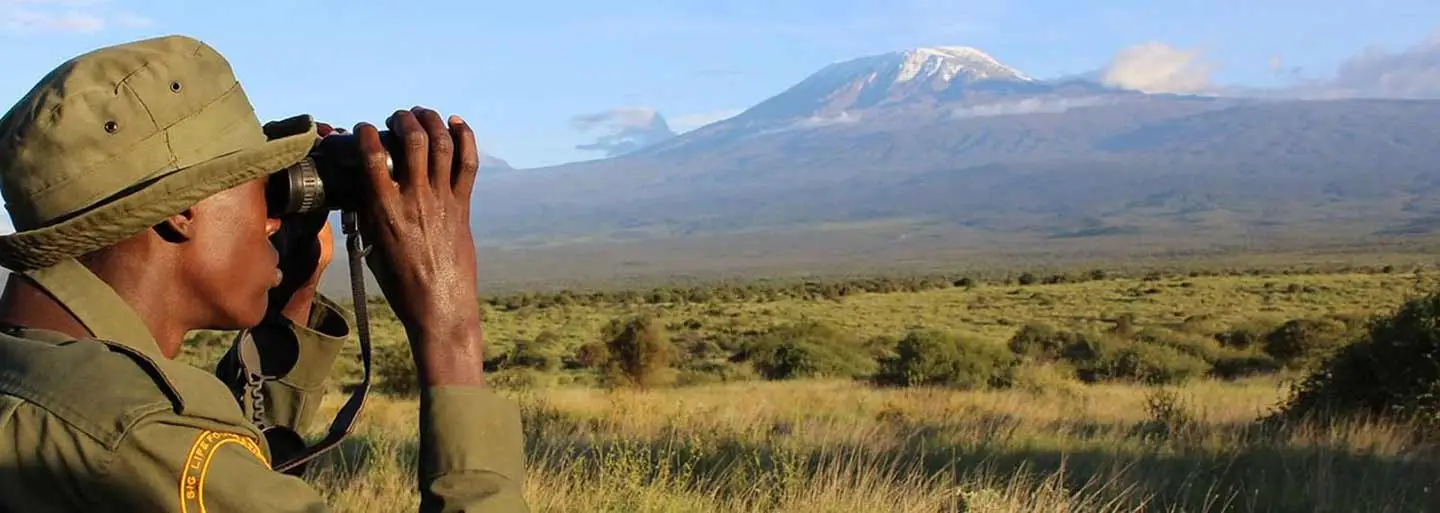Collaborators with skin in the game: Learning about the use of sport to foster resilience against wildlife crime in the Greater Kruger, South Africa

This 2024 USAID Collaborating, Learning, and Adapting (CLA) Case Competition winner is about the USAID Khetha Program, “Protecting Wildlife, Benefiting Communities."
WWF South Africa, with USAID Southern Africa, implements the Khetha Program - “Protecting Wildlife, Benefiting Communities,” in the context of wildlife crime. In the last decade, rhino populations in Protected Areas (PAs) have plunged as criminal syndicates recruit disadvantaged young men to poach rhinos. PAs became increasingly militarized, and an atmosphere of mutual distrust grew between many PAs and their community neighbours. In a shared landscape inhabited by over three million people, threats to young local lives and discord between neighbours had to be addressed. We searched for collaborators with “skin in the game,” partnered with GKEPF (Greater Kruger Environmental Protection Foundation) to develop a sports-based initiative to build youth’s resilience against crime and bolster relationships between local people and PAs.
Despite sports initiatives being common in conservation, data that demonstrate impact is scarce. Also, little evidence exists about how sports bring about social change, despite the GLTFCA (Greater Limpopo Transfrontier Conservation Area) Secretariat calling for the development and testing of a sports-youth-crime prevention Theory of Change as far back as 2020. We set out to bring research, rigor, reflection, learning and adaptation to our project! A literature review set the scene, a formative evaluation with target participants grounded what we learned from existing research, and a cutting-edge research tool, SenseMaker®, helped us harvest the project’s preliminary (but already transformative!) outcomes. We could pause-and-reflect and engage in an adaptive management process based on the project’s emerging successes and risks. What’s next? Expand our project and develop our Theory of Change.
This 2024 USAID CLA Case Competition winner was originally published on Learning Lab.



